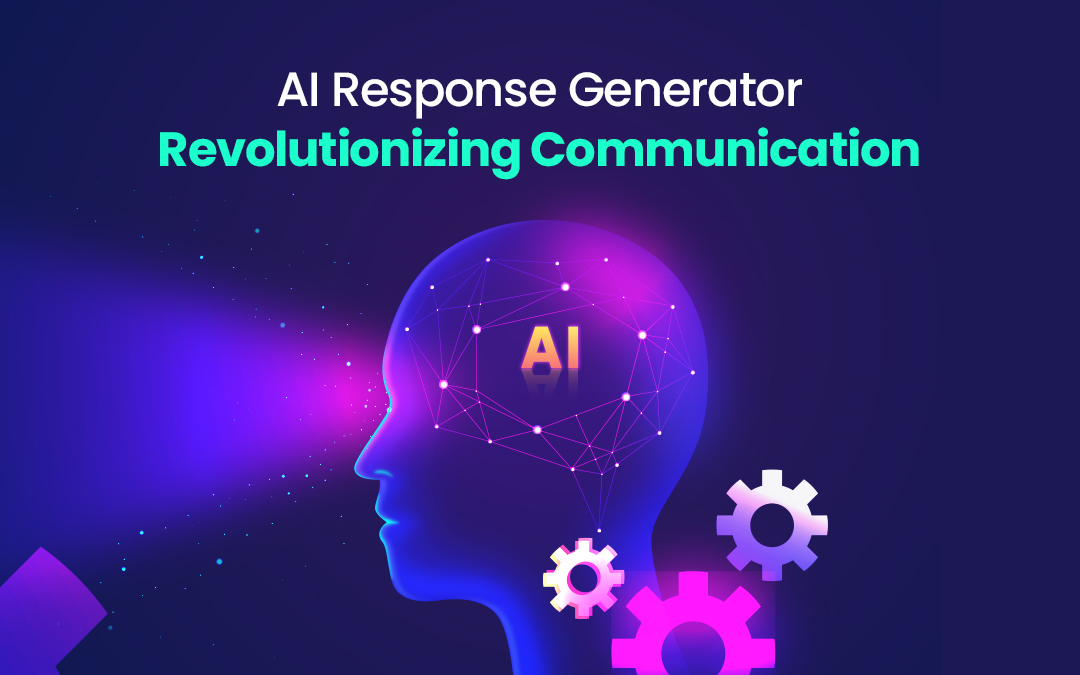
In recent years, Artificial Intelligence (AI) has made significant strides in various sectors, from healthcare to education, and one of its most impactful applications is the development of AI response generators. These systems are designed to automate and enhance communication by generating human-like responses based on input from users. Whether in customer service, virtual assistants, or content creation, AI response generators are transforming the way we interact with technology.
What is an AI Response Generator?
An AI response generator is a system powered by machine learning algorithms and natural language processing (NLP) models that can understand, interpret, and respond to user input in real-time. These systems are trained on vast datasets containing written texts such as conversations, articles, books, and online content, enabling them to mimic human communication patterns. They can generate responses ranging from simple queries to complex discussions, making them invaluable in numerous applications.
How Does an AI Response Generator Work?
AI response generators rely on advanced algorithms to process input and generate relevant and coherent responses. These systems typically use a combination of techniques:
- Natural Language Understanding (NLU): This involves breaking down the input text into its semantic components, such as recognizing the intent behind a user's query and identifying key phrases or concepts.
- Contextual Analysis: Advanced AI models, like OpenAI's GPT series, use context to generate more accurate responses. They don’t just respond based on individual words but also consider the broader context of the conversation, ensuring that responses are relevant and coherent.
- Response Generation: Once the input is processed, the system generates a response based on its training. The response can either be selected from pre-defined options or created dynamically, depending on the sophistication of the model.
- Feedback Loop: Modern AI response generators often incorporate a feedback mechanism that allows them to improve over time. By analyzing interactions and adjusting their responses based on user satisfaction, these systems continue to refine their understanding and output.
Applications of AI Response Generators
Customer Service: One of the most prominent uses of AI response generators is in customer support. Chatbots and virtual assistants powered by AI can handle a wide variety of customer inquiries, providing quick and accurate responses 24/7. This reduces wait times, increases efficiency, and allows human agents to focus on more complex tasks.
Virtual Assistants: AI response generators are also central to virtual assistants like Siri, Alexa, and Google Assistant. These tools use natural language processing to understand user commands and provide useful information, ranging from setting reminders to controlling smart home devices.
Content Creation: AI response generators can aid in content creation by automatically generating articles, blog posts, product descriptions, and more. These systems can take a topic or a set of keywords and craft coherent and engaging content in a fraction of the time it would take a human writer.
Mental Health Support: AI response generators are being explored for use in mental health apps, where they can provide support and guidance in a conversational format. While these tools cannot replace professional therapy, they can offer immediate relief and assistance to individuals in need.
Challenges and Limitations
While AI response generators have made impressive advances, they are not without their challenges. One of the biggest concerns is ensuring that the responses are ethical, accurate, and free from bias. AI systems can sometimes produce harmful or inappropriate responses, and mitigating this risk is a continuous area of research.
Moreover, AI generators may struggle with understanding the nuances of human emotions, humor, and cultural context, which can lead to misunderstandings. Additionally, these systems can sometimes generate repetitive or formulaic responses, lacking the creativity and empathy inherent in human interaction.
The Future of AI Response Generators
As AI continues to evolve, so too will its ability to generate increasingly sophisticated and nuanced responses. Future developments may include deeper emotional intelligence, improved context awareness, and the ability to engage in more natural and meaningful conversations. With these advancements, AI response generators have the potential to revolutionize communication, creating new opportunities for businesses, educators, and individuals alike.
Conclusion
AI response generators are reshaping the landscape of digital communication. While they face challenges, their ability to automate responses, provide assistance, and enhance user experiences is already making a profound impact across industries. As technology continues to improve, the role of AI in communication will only grow more significant.
Share this post
Leave a comment
All comments are moderated. Spammy and bot submitted comments are deleted. Please submit the comments that are helpful to others, and we'll approve your comments. A comment that includes outbound link will only be approved if the content is relevant to the topic, and has some value to our readers.

Comments (0)
No comment